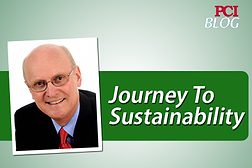Home » sustainability
Articles Tagged with ''sustainability''
Developing a New Way of Looking at Sustainability
Making it work to the benefit of the coatings industry and beyond, particularly as regulations get tougher
June 16, 2014
Keep the info flowing with our eNewsletters!
Get the latest industry updates tailored your way.
JOIN TODAY!Copyright ©2025. All Rights Reserved BNP Media.
Design, CMS, Hosting & Web Development :: ePublishing



